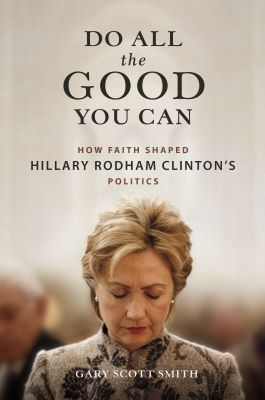Do All the Good You Can
How Faith Shaped Hillary Rodham Clinton’s Politics
Gary Scott Smith’s Do All the Good You Can scrutinizes the influence of Methodism on the life and work of Hillary Rodham Clinton.
Perhaps the most polarizing public figure in modern American history, Hillary Rodham Clinton has been a reviled and revered lightning rod for the most controversial topics in recent decades while also blazing a trail for other women to follow. Throughout her professional and political life, Clinton’s personal values and ethics have been questioned, including whether she is a person of faith.
Born in Chicago to Republican working-class parents, Clinton grew up a member of the United Methodist Church. Influenced by the dictum of the founder of Methodism, John Wesley, to do all the good a person can, Clinton molded her life’s work on the Methodist views on social, racial, and gender justice of the late 1960s. Though her sincerity has been questioned by political enemies, Clinton relied on her faith to get her through trying times, including the Monica Lewinsky affair and the loss of the 2016 presidential election.
Based on secondhand sources, Do All the Good You Can analyzes other publications wherein Clinton’s faith was discussed, by her and by others. It’s an attempt to set the record straight about a misunderstood trailblazer. Methodism runs throughout the book as the analytical thread, with each chapter discussing a specific turning point in Clinton’s life and how religion guided her, including the tumultuous civil rights era, the Vietnam War, becoming a Democrat as a college student, winning over the people of Arkansas as their first lady, working at the White House, and running for president.
Do All the Good You Can is an encomium to Hillary Rodham Clinton as a politician and a Methodist.
Reviewed by
Erika Harlitz Kern
Disclosure: This article is not an endorsement, but a review. The publisher of this book provided free copies of the book to have their book reviewed by a professional reviewer. No fee was paid by the publisher for this review. Foreword Reviews only recommends books that we love. Foreword Magazine, Inc. is disclosing this in accordance with the Federal Trade Commission’s 16 CFR, Part 255.

